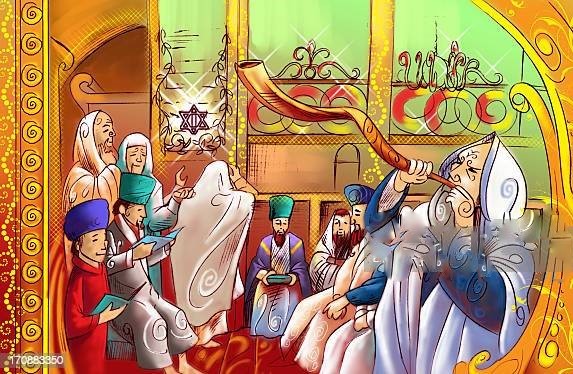 SATURDAY PRAYER: BINAH-YESHIVAT HAVERIM יְשִׁיבָה חברים – BABYLONIAN TALMUD p156
SATURDAY PRAYER: BINAH-YESHIVAT HAVERIM יְשִׁיבָה חברים – BABYLONIAN TALMUD p156

READING: BETWEEN MIDNIGHT AND DAWN OF SATURDAY
Rabbi Johanan in the name of Rabbi said: “One should not absent himself from the college even
for one hour. Behold, this teaching (concerning a river boat) has been taught in the schools for
many years and no one knew the reason for it until R. Hanina b. Aqa’bbia came and explained
it.”
R. Jonathan said: One should never absent himself from the house of learning or abstain from
learning the law, even when at the point of death, for it is written [Num. xix. 14]: “This is the
law, when a man dieth in his tent”; (i.e.) even at the point of death man must occupy himself
with the study of the law. Resh Lakish, however, adduces from the same verse that one does not
retain (in memory) the law, unless he is ready to die for it.
MISHNA III.: (R. Aqiba said:) Whence do we adduce that in a patch of ground six spans long
by six spans wide five different kinds of seed may be planted–one kind each in each of the four
corners and one in the centre of the patch? From the passage [Isaiah, lxi. 11]: “For as the earth
bringeth forth her growth, and as a garden causeth what is sown therein to spring forth.” (We see
then) it is not written “as a garden causeth its seed to spring forth,” but what is sown therein.
GEMARA: How is this to be understood from that passage? Said R. Jehudah: The passage cited
in the above Mishna is to be thus explained: “The earth bringeth forth her growth.” “Bringeth
forth” (which is in the singular) can be counted for “one” (kind of seed). Her “growth” (also
singular) can also be counted for “one.” (Now we have two.) “What is grown therein” (evidently
plural) can be counted for two more (making four), and “to spring forth” (in the singular again)
can be counted as one, making five in all; and (as far as the six spans square are concerned) the
rabbis are quite certain (through tradition) that five different kinds of seed in a patch six spans
square do not interfere with one another. But whence do we know that the assurance of the
rabbis can be depended upon? Answered R. Hyya b. Aba in the name of R. Johanan, from the
passage [Deut. xix. 14]: “Thou shalt not remove the landmark of thy neighbor, which they of old
time have set,” which is to be explained: “Thou shalt not go beyond what is limited by those
of old.” But what have those of old limited? Answered R. Samuel bar Na’hmeni in the name of
R. Jonathan: “It is written [Gen. xxxvi. 20]: “These are the sons of Seir the Chorite, who
inhabited the land.” Only they inhabited the land? Did the rest of mankind inhabit heaven? It
simply means to state that they made the earth inhabitable by their knowledge of agriculture and
their experience as to what ground is adapted for the planting of olive trees, vines, date trees, etc.
 HALF REDUCTION OF FLOW IN THE INNER LEFT COURT FOR GREATER DISCLOSURE OF THE UPPER FORCE
HALF REDUCTION OF FLOW IN THE INNER LEFT COURT FOR GREATER DISCLOSURE OF THE UPPER FORCE WEDNESDAY PRAYER: KETER-SHACHARIT שַחֲרִית MORNING PRAYER
WEDNESDAY PRAYER: KETER-SHACHARIT שַחֲרִית MORNING PRAYER WEDNESDAY PRAYER: KETER-TIKKUN CHATZOT תקון חצות-TIKKUN RACHEL & TIKKUN LEAH
WEDNESDAY PRAYER: KETER-TIKKUN CHATZOT תקון חצות-TIKKUN RACHEL & TIKKUN LEAH